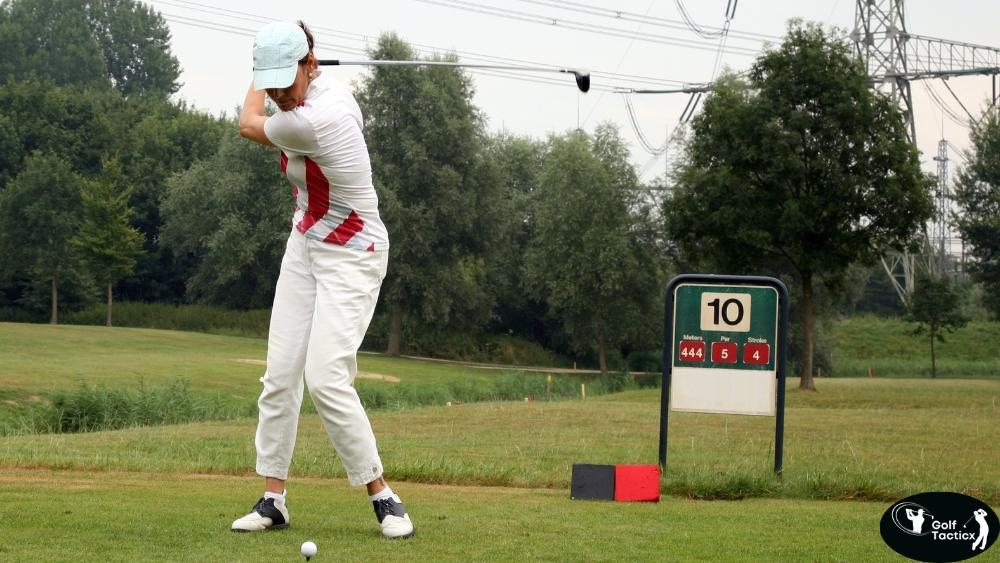In the previous post, we discussed How Do Pro Golfers Use Stats to Refine Strategy?, highlighting how data helps them make smarter decisions and improve performance.
Are you getting ready for your next big golf tournament? Whether you’re a beginner or have played in many events, learning How to Master Golf Tournament Play can help you stay calm and play your best. Tournaments are different from casual games. There’s more pressure, a set format, and sometimes even a crowd watching. That’s why it’s important to prepare the right way.
From understanding the rules to planning your shots, every step can make a big difference. Embarking on your journey into golf tournaments is both thrilling and challenging. As a beginner, understanding how to prepare effectively can set you up for success.
In this post, I’ll guide you through How to Master Golf Tournament Play so you can feel confident on the course and improve your score. Let’s explore the best ways to prepare for tournament play.
Understand the Tournament Format
Tournaments can vary in format, such as stroke play or match play. Familiarize yourself with the specific rules and structure of the tournament you’ll be participating in. This knowledge will help you strategize effectively. As a pro, I always study the tournament’s format well in advance because it changes how you approach each hole.
For example, in match play, every hole is a separate contest, so sometimes playing safe to halve a hole is smarter than risking a big number. In stroke play, every shot counts towards your total, so minimizing big mistakes is critical.
Also, be aware of any local rules or special conditions, like how ties are broken or if there are any unique scoring methods. Knowing these details helps you mentally prepare and avoid surprises on the course.
Study the Course
Before the tournament, take time to study the course layout. Identify key features like hazards, greens, and fairways. Understanding the course will allow you to plan your shots and manage risks better. I recommend playing practice rounds early and walking the course to get a feel for the terrain and wind patterns.
Note which holes you can attack aggressively and where it’s better to play conservatively. Pay attention to the green speeds and break patterns as well, so you can adjust your putting accordingly. Also, track yardages carefully; knowing exactly how far each shot is will boost your confidence when selecting clubs.
Develop a Practice Routine
Consistent practice is crucial. Focus on all aspects of your game, including driving, iron play, chipping, and putting. A balanced practice routine ensures you’re well-prepared for various situations on the course. I suggest mixing technical drills with on-course simulations during practice sessions.
For instance, spend time hitting shots from uneven lies or practicing bunker shots because tournaments rarely offer perfect conditions. Don’t neglect your mental game incorporate routines that build focus and calm under pressure, such as visualization and breathing techniques. The goal is to arrive at the tournament confident that your game is sharp and ready.
Work on Your Short Game
The short game putting, chipping, and pitching often determines the outcome of a round. Dedicate ample time to practicing these skills to improve your scoring ability. I personally devote more than half my practice time to the short game because those shots save the most strokes.
Work on distance control, trajectory, and reading greens precisely. During tournaments, many scoring opportunities come from getting up and down from tricky spots, so mastering this area gives you a competitive edge. Try to replicate real tournament pressure during your short game practice to build nerves of steel.
Simulate Tournament Conditions
Practice under conditions similar to the tournament. Play rounds with friends, set time limits, and simulate pressure situations to build confidence and adaptability. I find that putting myself in “game mode” during practice helps me perform better when it counts.
Treat practice rounds like actual competitions, keeping score and focusing on every shot. Also, practice managing bad shots calmly and recovering well tournaments often test your ability to bounce back. The more you can replicate the mental and physical demands of tournament play beforehand, the less likely nerves will affect you on the day.
Focus on Physical Fitness
Maintaining good physical health enhances your stamina and concentration during the tournament. Incorporate regular exercise, including flexibility and strength training, into your routine. Golf is deceptively demanding; long rounds require endurance, and consistent swing mechanics need strong core muscles.
I recommend a fitness program tailored to golf that includes cardiovascular work, stretching, and strength exercises focusing on rotational power and stability. Proper nutrition and hydration before and during the tournament are equally important to keep energy levels high and prevent fatigue. When your body feels strong and flexible, your game naturally improves.
Prepare Mentally
Mental toughness is key in tournaments. Develop strategies to stay focused, manage stress, and maintain a positive attitude throughout the round.
Plan Your Tournament Day
On the day of the tournament, arrive early to warm up and familiarize yourself with the course conditions. Have a pre-round routine to get into the right mindset.
Manage Your Equipment
Ensure your clubs are clean and in good condition. Check that you have all necessary equipment, including tees, balls, and a rangefinder if permitted.
Stay Hydrated and Nourished
Bring water and healthy snacks to keep your energy levels up during the round. Proper hydration and nutrition can significantly impact your performance.
Learn from Each Round
After the tournament, reflect on your performance. Identify areas for improvement and celebrate your successes to build confidence for future events.
By following these steps, you’ll be well-prepared to tackle your first golf tournament with confidence and skill. Remember, every round is an opportunity to learn and grow as a golfer.
Stay tuned for our next blog post, where we’ll discuss how to create an effective practice routine leading up to a competition.
Conclusion
Mastering golf tournament play takes time, practice, and the right mindset. By preparing ahead, staying focused, and managing your emotions, you can perform at your best when it matters most. Remember, every tournament is a chance to learn and grow as a golfer. Stay calm, trust your skills, and enjoy the experience. With the right approach, you’ll not only improve your game but also build the confidence needed to succeed in any competition.
In the next post, we will explore essential golf training tips before competition to help you prepare mentally and physically for your best performance on the course. Stay tuned for expert golf advice!
















Leave a Reply